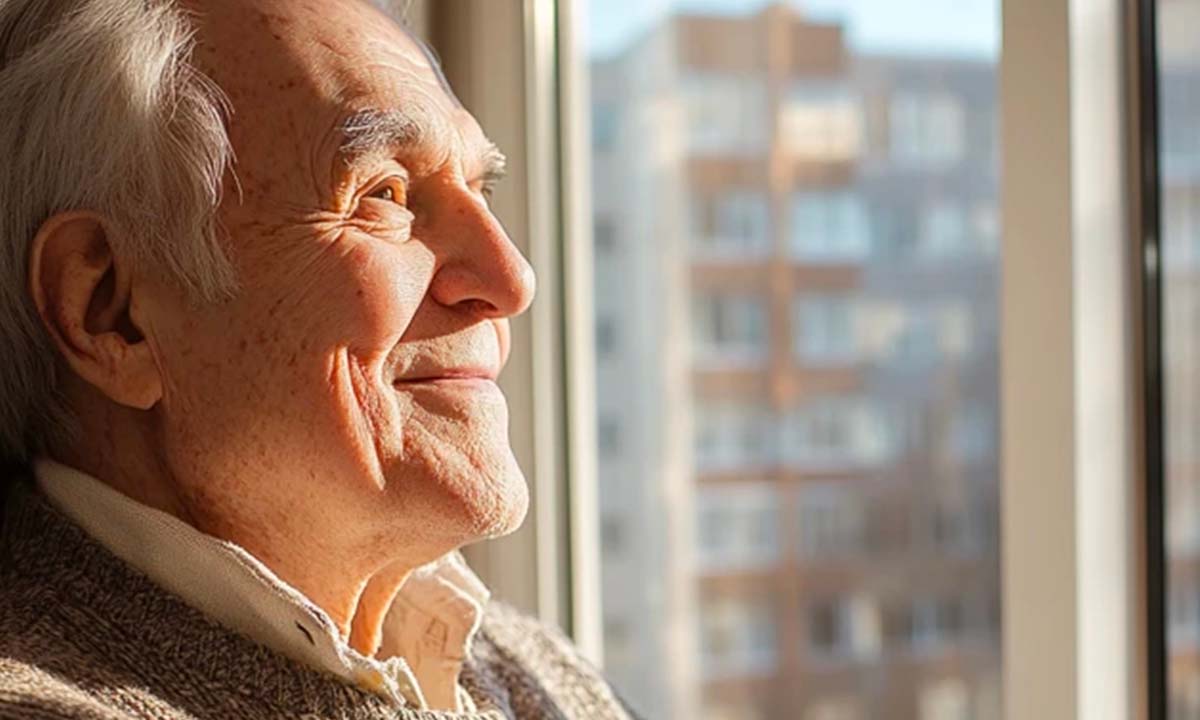Home palliative care: focusing on the person
Definition and objectives of home palliative care
Palliative care aims to alleviate the suffering of people with incurable diseases in the advanced stages, also offering the best possible quality of life until the end. Contrary to popular belief, palliative care is not only provided in the final days of life, but accompanies the patient (and their family) for months or even years, from the moment the disease is no longer curable and mainly requires symptom control and comprehensive support.
Specialized palliative care services at home in Ticino
In Ticino, there are two categories of services specializing in the care and management of palliative situations. They are divided into first and second lines. The first lines are spread throughout the territory and represented by private and public SACDs (Specialized Palliative Care Service), but only some of these guarantee sufficient specialized personnel to ensure optimal palliative care management. Secondary services provide essential support for the management and cooperation involved in keeping patients who are undergoing palliative care at home. CAD provides personalized staff to manage every palliative situation with quality and precision. For optimal management, it is essential to have strong primary services, a 24-hour on-call medical team to cover any needs 24 hours a day, and secondary services that provide concrete support.
Holistic approach to end-of-life care
Their aim is to care not only for the physical aspects (pain, symptoms) but also for the psychological, social, and spiritual aspects of the end of life. They are committed to allowing patients to remain at home until the end, if that is their wish, ensuring dignity and respect for their wishes.
Respecting the patient’s wishes in palliative care
Guiding principles of palliative care
In the terminal phase of life, “their wishes, their dignity” become the guiding principles of care. The patient must remain in control of decisions that affect them, consistent with their clinical condition. This means, for example, respecting their wish to die at home rather than in a hospital.
Many people express this preference: to be able to die in their own bed, surrounded by their loved ones, in an intimate setting. Respecting these decisions is crucial to providing dignified and supportive care.
The crucial role of the family in palliative home care
The consent and commitment of the family to home care play a central role in enabling the patient to manage even complex symptoms at home. In other words, if the family is willing and prepared to support this choice, the chances of success increase.
It is therefore essential to provide adequate support to family caregivers so that they have the skills and support they need to keep their loved one at home. When the patient, family, and care team are on the same page and there is open communication, it becomes easier to organize everything so that the patient’s wishes are respected.
Dignity of the person until the end
Dignity is protected by listening to the patient and trying to fulfill their wishes (compatibly with medicine). This means, for example, avoiding aggressive treatments that the patient does not want and focusing efforts on what is important to them: being able to talk to family members, remaining as lucid as possible, not experiencing excruciating pain, perhaps seeing one last sunset from their window.
Continuous palliative care service in Ticino
Home palliative care in Ticino also offers regular and frequent medical and nursing visits, even daily if necessary, and a 24-hour medical on-call service to ensure continuous safety. This ensures that the patient always has control over their symptoms (for example, pain therapy is adjusted promptly) and does not have to be admitted to the hospital for emergencies that can be managed at home.
Symptom control and psychological and relational support activities
Good control of pain, dyspnea, nausea, and other symptoms is essential not only for physical comfort but also for dignity: it allows the person to maintain their role until the end, perhaps talking to their children, expressing their thoughts, and receiving affection, rather than being overwhelmed by suffering.
In addition, through activities such as occupational therapy or simple conversation, the patient is helped to feel still alive, part of the family and community, not abandoned. Triangolo, for example, also organizes moments of sharing and recreation for patients and family members (such as the Human Library, where people discuss their experiences of illness), because even at the end of life, there can be moments of meaningful humanity and connection.
Learn more about the advantages of home care compared to hospitalisation
Advance directives: planning end-of-life decisions
A fundamental aspect of respecting the patient’s wishes is that of advance directives (also known as living wills). Advance directives are a written document in which a person, while still capable of understanding and willing, declares which medical treatments they accept or refuse in the event that they are no longer able to express themselves in the future.
Legal validity of living wills
In Switzerland, advance directives have full legal validity (Art. 370-373 CC): the doctor is obliged to respect them, unless their content violates the law (for example, you cannot ask for something that is illegal).
Drawing up these directives is an important tool for self-determination, because it ensures that your wishes and desires regarding medical treatment are known and respected by your family and caregivers. In practice, writing advance directives means answering questions in advance such as: “If I am no longer able to express myself and my illness worsens, do I want doctors to do everything possible to keep me alive, or would I prefer to avoid unnecessary life-sustaining treatment and focus only on comfort?”
When and how to draw up patient directives
Advance directives should be prepared in good time, ideally while you are still in good health or at the onset of illness (do not wait until the final stage, when it may be too late). It is your right, not an obligation, to complete them. They can be revoked or modified at any time while you are still capable of making decisions. They must be written, dated, and signed by you; it is advisable to review them every few years to ensure that they still reflect your wishes.
It is also essential to let your loved ones or family doctor know where they are kept so that they can be found when needed. In Ticino, the Palliative Ticino portal emphasizes that documents such as advance directives and precautionary mandates allow you to express your care preferences in advance, “ensuring that these are respected by your family and caregivers.”
Practical example: compliance with directives in palliative care
It is essential to ensure that the dignity and self-determination of the patient are honored. In the practical example, if a person has made it clear that they do not want to be intubated in intensive care in the final stages of Alzheimer’s dementia, palliative care teams will help the family to respect that choice, avoiding inappropriate interventions that would only prolong the agony without benefit.
Home palliative care services: professionals and volunteers
In the home palliative care approach, it is crucial to also offer comprehensive support to patients and families throughout the course of the illness, allowing many to remain at home and reducing or avoiding stays in care facilities.
This is achieved with the help of a dynamic interdisciplinary team – including trained volunteers usually composed of:
- Oncologists and palliative care physicians
- Specialized nurses
- Psycho-oncologists
- Psychiatrists
- Social workers
- Volunteers
An important aspect is volunteering: trained volunteers also offer presence, listening and companionship to patients, relieving family members for a few hours. This enriches the human dimension of care, keeping the sick person integrated into the community and not isolated.
The role of palliative care physicians
Some organizations also offer specialist advice and support at home, in particular with palliative care physicians who can assist the attending physicians in controlling difficult symptoms.
“Your wishes, your dignity” is not just a slogan, but the cornerstone of palliative care at home. It means putting the patient at the center, listening to them, and accompanying them in the way they want: alleviating pain, respecting their person and values, involving them in decisions (including through tools such as advance directives), and supporting those around them. In this way, even the end of life can be lived with serenity and fulfillment, in the warmth of one’s own home, surrounded by love and with the competent support of professionals who care not only about the illness, but about the person as a whole.
CAD is involved in all phases of home care, from emergency to ongoing care.
Discover our services
FAQ – Frequently asked questions
What is home palliative care?
Home palliative care is a comprehensive care approach for people with incurable illnesses, aimed at improving quality of life through symptom control and psychological, social, and spiritual support, allowing the patient to remain in their home environment.
How long can home palliative care last?
It can last from a few weeks to several years, depending on the course of the illness. It is not limited to the last days of life, but can begin as soon as the illness is diagnosed or a specific symptom appears.
How is home palliative care activated in Ticino?
Through:
- Attending physician and/or specialist
- Assessment by the palliative care nursing team (Spitex)
- Direct contact with associations and facilities specialising in palliative care
Why is a multidisciplinary team important?
Because palliative care requires different skills:
- Medical (symptom control)
- Nursing
- Psychological
- Social
- Spiritual
- Only an integrated team can respond to all the needs of the patient and their family.
What can CAD do for home palliative care?
CAD is a local reference point for expertise and professionalism in the management of palliative care patients. Thanks to its multidisciplinary team and close collaboration with secondary care providers, CAD is able to manage any palliative care situation at home with dignity and professional respect, in accordance with the wishes and consent of the patient and their family.
Contact us to find out how CAD can help you manage palliative care and provide advice and assistance in complex clinical situations.
Sources and further reading:
- Kern H, Corani G, Huber D et al. Impact on place of death in cancer patients: a causal exploration in southern Switzerland. BMC Palliative Care 19, 160 (2020). (PMC)
- De Brosses K, Sciboz M, Foppa C et al. Quality of outpatient palliative care assessed by direct service observation in Switzerland. Palliative & Supportive Care (in press, 2025). (ScienceDirect)
- Bosshard G et al. Palliative sedation – revised Swiss recommendations 2022. Swiss Medical Weekly 153:w3590 (2023). (smw.ch)
- Käppeli S et al. Digital care conferences in local palliative networks: perceptions of an outpatient team in Switzerland. Swiss Medical Weekly 153:w3487 (2023). (smw.ch)
- Rüesch P, Wagner A et al. Awareness, approval and completion of advance directives among Swiss adults 55+ two years after their legal introduction. Swiss Medical Weekly 147:w14579 (2017). (smw.ch)
- Cavalli S et al. Public attitudes towards advance directives and assisted suicide in Switzerland: a population-based study. BMC Geriatrics 24 (2025). (PMC)
- Bundesamt für Gesundheit (UFSP). Road map per l’attuazione della pianificazione sanitaria anticipata (PSA) in Svizzera. 2024. (Bag)
- https://www.palliative-ti.ch/paziente/questioni-pratiche
- https://www4.ti.ch/dss/dasf/temi/familiari-curanti/prestazioni-e-servizi-per-persone-che-necessitano-di-assistenza/servizi-di-cure-palliative-a-domicilio
- https://www.triangolo.ch/cure-palliative/il-desiderio-di-morire-a-casa/




